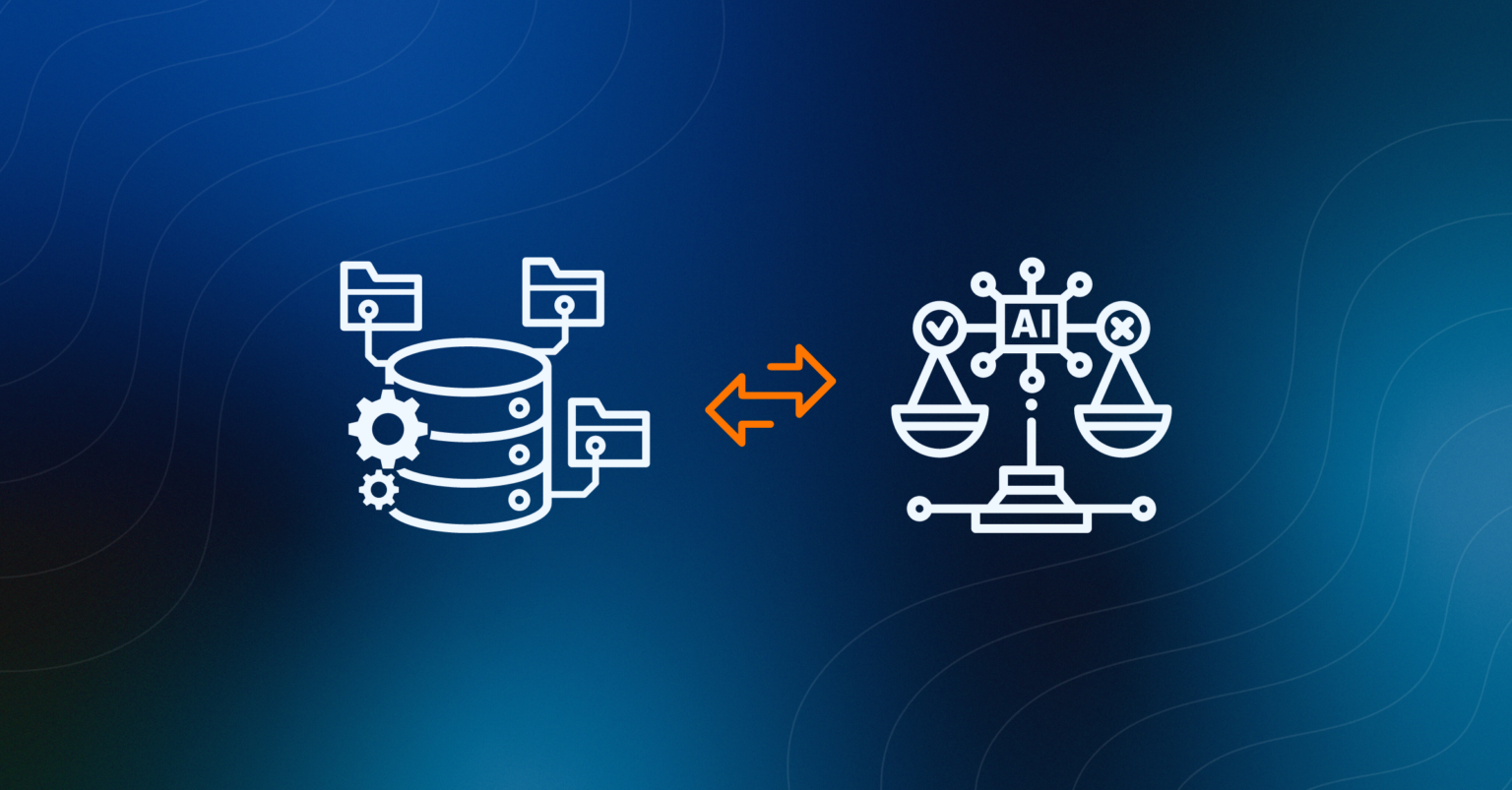Share this on:
What You'll Learn
You have introduced AI into your organization. But how do you build trust in your AI applications, workflows, or solutions? Enter responsible AI.
84% of leaders say that every AI-based decision should be explainable to be trusted. This blog will cover all critical nuances around responsible AI, including the importance of data management for building reliable, trustworthy, and responsible AI.
Discover how our technology partner, Informatica – a leader in enterprise AI-powered cloud data management, is a game-changer in this domain.
What is Responsible AI?
Responsible AI, also known as ethical AI or trustworthy AI, is the practice of designing, developing, and employing artificial intelligence in ways that are both ethical and legal. If you are working on building and scaling AI models – the concept of responsible AI can’t be overlooked.
Three questions you must be clear about:
- Who is responsible for training your AI systems?
- What kind of data was used to train the AI systems?
- How does the algorithm’s recommendation system work?
Responsible Artificial Intelligence is an umbrella term for aspects of making appropriate business and ethical choices when adopting AI. These include business and societal value, risk, trust, transparency, fairness, bias mitigation, explainability, sustainability, accountability, safety, privacy, and regulatory compliance. Responsible AI encompasses organizational responsibilities and practices that ensure positive, accountable, and ethical AI development and operation.
Why Responsible AI is Important
Accenture’s 2022 Tech Vision Research claims that only 35% of global customers trust the ways organizations implement AI. And 77% of them believe that companies must be held accountable for their AI misuse.
Meaning? You can’t plan your AI initiatives without a robust, ethical AI framework. Around 52% of organizations say that they practice some level of responsible AI. However, 79% of those companies have also stated that their implementations were limited in scope.
AI Disaster: When Amazon’s recruiting engine didn’t like women!
Back in 2014, Amazon introduced an AI recruiting tool that was supposed to review and rate job applicants’ resumes from 1 to 5 stars to identify the top talent and eliminate the rest.
The review system was much like how shoppers rate products on Amazon.
However, as per the report by Reuters, by 2015, Amazon realized that the new AI system was not rating candidates in a gender-neutral way, especially for roles like software developers or other technical posts.
Reason? The computer models were trained to filter applicants based on patterns in resumes from the past 10 years.
Now, most of these resumes were from men and reflected a male dominance in the tech industry. As a result, the AI system deduced that men were better candidates.
In fact, it penalized resumes that mentioned “women’s”. Example: “Women’s chess club captain” It also thought less of people who went to colleges where only women studied.
The algorithm was clearly biased against women. And, therefore, Amazon scrapped the AI recruiting program in 2018.
Is your organization prepared to mitigate challenges like the one mentioned above? If not, now is the time to focus on developing resilient AI that’s fit to drive sustainable innovations. If you are of the view that responsible AI only exists in theory, you are completely mistaken. Microsoft, Google, and IBM are some of the top tech giants that have built-in AI framework and capabilities.
Principles of Responsible AI
Your AI model must be built on 5 key principles:
Fairness
Develop AI systems based on diverse perspectives. They should be inclusive in nature & not biased towards a particular gender, race, or age.
Accountability
Make sure the roles, responsibilities, and processes related to AI systems are clear. There should be consistent human monitoring of AI.
Safety & Reliability
Society and businesses’ safety should be the top priority. AI must be tested across different scenarios before using it in day-to-day operations.
Security
Implement best-in-class security & risk mitigation practices to interact with personal sensitive data. Include sensitivity classification & purpose limitation for AI.
Transparency
Ensure traceability on how AI generated outputs are leveraged. The entire AI lifecycle should be explainable.
Responsible AI Requires a Unified Approach to Data Management
Enterprises across industries are leveraging public large language models to transform business operations. But the problem is that they might be using the same LLMs. The question here is – what do you do differently to beat your competition? The answer is data and how it’s being used. When deploying AI models and systems, data management can be of great use in three critical ways:
- Sourcing high-quality data for AI model training and ensuring trustworthy & accurate AI prompting.
- Maintaining clean data for monitoring AI system’s performance.
- Enabling data governance frameworks for compliance and ongoing improvement validation & regression.
So, if you’re to build AI systems that are fair, transparent, and reliable, you must have a strong grip on your data. Implementing strict controls will ensure that data is managed ethically, and you can always retrace the steps that led to a particular AI outcome.
You’ll need a robust data management platform to organize and secure data and enable responsible AI successfully.
Choose Informatica to Enable Responsible AI
Informatica is a leader in enterprise AI-powered cloud data management. Informatica’s Intelligent Data Management Cloud empowers you to work with high-quality, protected, and safe data.
Result? Trusted and responsible outcomes from AI applications. Informatica IDMC’s unique capability to manage different data types, patterns, or workloads across locations makes it the preferred data management tool among enterprises.
Informatica IDMC services that facilitate the enablement of responsible AI:
Access Management
Fine-grain controls to prevent inappropriate data access and maintain accountability for responsible AI.
Data Integration
AI-based recommendation engine for automated data integration & consistency across systems. This prevents biased or unreliable AI outcomes.
Data Quality
Automated data profiling to understand data better and detect problems. Pre-built AI-powered data quality rules to enable fit-for-purpose data.
MDM
Intelligent automation to track the history and source of master data and ensure transparency & accountability in AI applications.
Data Governance
CLAIRE AI-powered intelligence to simplify governance processes and generate trusted data for responsible AI.
Data Sharing
A centralized platform with validated and curated data sets to enhance transparency within data ecosystem.
Data Cataloging
Automated data discovery & lineage to find information that’s essential for training AI models.
Data Privacy
Implement data masking & anonymization while using sensitive data for AI.
LumenData Leads Informatica Consulting & Implementation Services
LumenData is a long-standing partner with Informatica with 15+ Years of expertise in Informatica Consulting & Integration Services. We are proud holders of 173+ Informatica Certifications and can provide you with guidance and support for multi-domain MDM, MDM SaaS, Informatica Data Quality, Enterprise Data Catalog, Customer 360 SaaS, Reference 360 SaaS, Supplier 360 SaaS, & more.
We enable faster go-to-market using our exclusive range of customizable accelerators for Axon to CDGC migration, Informatica On-Prem to SaaS, UCM to SaaS MDM migration, Higher Ed 360, Supplier 360, Customer 360 SaaS, & SAP integration.
Get in touch today.
About LumenData
LumenData is a leading provider of Enterprise Data Management, Cloud, and Analytics solutions and helps businesses handle data silos, discover their potential, and prepare for end-to-end digital transformation. Founded in 2008, the company is headquartered in Santa Clara, California, with locations in India.
With 150+ Technical and Functional Consultants, LumenData forms strong client partnerships to drive high-quality outcomes. Their work across multiple industries and with prestigious clients like Versant Health, Boston Consulting Group, FDA, Department of Labor, Kroger, Nissan, Autodesk, Bayer, Bausch & Lomb, Citibank, Credit Suisse, Cummins, Gilead, HP, Nintendo, PC Connection, Starbucks, University of Colorado, Weight Watchers, KAO, HealthEdge, Amylyx, Brinks, Xylem, Clara Analytics, and Royal Caribbean Group, speaks to their capabilities.
For media inquiries, please contact: marketing@lumendata.com.
Authors

Content Crafter

Senior Consultant



